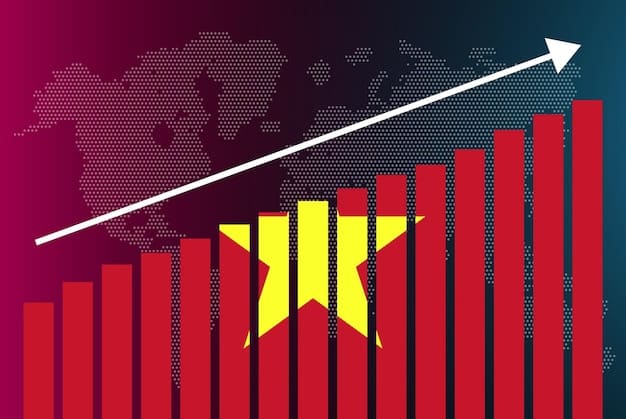Korean Drama Salaries: Unveiling 2024’s Highest-Paid Stars

In 2024, several Korean drama stars have commanded impressive salaries, reflecting their popularity and the global success of K-dramas, with seasoned actors like Kim Soo-hyun and Jun Ji-hyun leading the pack in earnings per episode.
The world of Korean dramas, or K-dramas, has seen a meteoric rise in popularity, captivating audiences worldwide. This surge in viewership has also translated into lucrative opportunities for its stars. Let’s take a look at Korean Drama Star Salaries Revealed: Who Earned the Most in 2024?
Highest-Paid Korean Drama Actors of 2024
The South Korean entertainment industry is known for its captivating dramas and talented actors. With the global expansion of K-dramas, top stars are now commanding impressive salaries. Some actors receive higher paychecks, reflecting their experience, popularity, and contribution to the success of a drama.
Let’s explore which actors are at the pinnacle of the salary hierarchy in 2024. These actors are not only talented but also box-office draws, making them highly sought after for leading roles.
Kim Soo-hyun: The Reigning King
Kim Soo-hyun has consistently been one of the highest-paid K-drama actors. Known for his roles in hit dramas like “My Love From Another Star” and “It’s Okay to Not Be Okay,” his per-episode salary reflects his star power and ability to draw in large audiences.
His recent projects have further solidified his position. Kim Soo-hyun’s earning power extends beyond acting, including endorsements and other ventures that significantly add to his income.
Jun Ji-hyun: The Evergreen Queen
Jun Ji-hyun, celebrated for her roles in “My Sassy Girl” and “Legend of the Blue Sea,” remains one of the highest-paid actresses in the Korean drama landscape. Her enduring popularity and critically acclaimed performances have kept her at the top.
Having demonstrated consistent box office success throughout the years, Jun Ji-hyun’s projects often generate considerable buzz, solidifying her status as a highly sought after lead actress.

- Contract Negotiations: Top stars often have agencies that negotiate favorable contracts.
- Global Appeal: Actors with a strong international fan base can demand higher salaries.
- Endorsement Deals: Many actors supplement their income with lucrative endorsement deals.
- Production Budget: The overall budget of a drama project can influence actor salaries.
The salaries of the highest-paid Korean drama actors in 2024 reflect their established careers, global recognition, and the significant impact they have on the success of their dramas. These stars continue to dominate the industry, setting the standard for others.
Factors Influencing K-Drama Star Salaries
Several factors come into play when determining the compensation for K-drama stars. These include experience, popularity, and the overall success rate of their previous projects. A meticulous mix of criteria is evaluated to ensure fair and competitive compensation.
Let’s break down some of the critical elements that affect how much these stars earn.
Experience and Track Record
One of the primary determinants of an actor’s salary is their experience in the industry. Actors with a long history of successful dramas and films often command higher fees. Their proven ability to deliver high-quality performances and attract viewers makes them valuable assets.
A solid track record provides producers with confidence in their investment. Seasoned actors are viewed as reliable draws, reducing the risk associated with new projects.
Popularity and Fan Base
An actor’s popularity, both domestically and internationally, significantly influences their earning potential. Stars with large and dedicated fan bases can bring more viewers to a drama, increasing its chances of success.
The appeal of these actors often extends to social media. Their profiles and engagement create additional value that translates into higher salaries.
The Drama’s Budget and Production Value
The overall budget allocated to a drama project also plays a vital role in determining actor salaries. High-budget dramas with elaborate sets, renowned writers, and experienced directors often have more resources to offer competitive compensation packages.
Dramas backed by major networks or streaming platforms are typically able to afford higher salaries. Production companies will sometimes seek to secure popular and recognizable actors, in order to ensure high viewership and revenue.
- Market Demand: The demand for an actor’s services at a given time affects their salary.
- Negotiation Skills: The actor’s agency’s ability to negotiate favorable terms is also a factor.
- Role Significance: Leading roles naturally command higher salaries compared to supporting roles.
Numerous interconnected factors influence the salaries of K-drama stars. The interplay of experience, popularity, drama budget, and overall market conditions determines the earning capacity of these talented individuals.
Comparing Salaries: Then and Now
Salaries for K-drama stars have evolved substantially over the years. The increase in global popularity and the rise of streaming platforms have created new revenue streams, transforming the compensation packages for top actors.
Let’s explore how the landscape has changed and what it means for the future of K-drama remuneration.
The Rise of Streaming Services
The advent of streaming services like Netflix, Viki, and Disney+ has revolutionized the K-drama industry. These platforms have not only expanded viewership but have also increased the budgets allocated to drama productions.
The influx of capital has allowed production companies to offer more competitive salaries. The streaming services often co-produce dramas, investing significant sums to attract top talent.
Increased Global Viewership
K-dramas have gained a massive following worldwide, particularly in Asia, North America, and Europe. This global viewership has translated into higher advertising revenues and larger licensing deals.
The international appeal of Korean dramas has increased the demand for recognizable actors. Global popularity has made big stars more valuable, further driving up their salaries.

Historical Salary Trends
In the past, K-drama actor salaries were significantly lower. The industry was primarily supported by domestic television networks, which had limited budgets compared to today’s streaming giants.
The remuneration scale has increased substantially. This transformation reflects the overall growth and commercialization of the industry because now K-dramas are a global cultural phenomenon.
- Inflation: Over time, inflation has naturally led to increases in salaries.
- Economic Growth: South Korea’s economic growth has also supported higher wages in the entertainment sector.
- Evolution of Compensation Models: Compensation models have evolved to include profit-sharing and bonuses.
Over the past few years, K-drama star salaries have changed significantly, spurred by the rise of streaming services, increased global viewership, and various economic factors. The industry has transformed to become more globalized, leading to higher compensation packages for actors.
Beyond Acting: Endorsements and Other Income Streams
The earnings of K-drama stars extend beyond their acting roles, as endorsements and other income streams contribute significantly to their overall wealth. Top actors often become brand ambassadors, capitalizing on their influence to promote products and services.
Exploring these additional income avenues provides a more comprehensive picture of their financial landscape.
Brand Endorsements
K-drama stars are highly sought after for brand endorsements. Companies across various industries, including fashion, beauty, food, and technology, enlist the services of these celebrities to promote their products.
The endorsement deals can be highly lucrative, generating substantial income. They leverage their fame and influence to drive sales for the brands they represent.
Advertising Deals
In addition to brand endorsements, advertising deals also contribute significantly to an actor’s income. Actors often appear in television commercials, print ads, and online campaigns.
Advertising deals capitalize on an actor’s visual appeal, making them effective spokespersons. These campaigns can boost brand recognition and sales figures.
Appearances and Events
Appearances at public events, such as product launches, fan meetings, and award ceremonies, offer additional income opportunities for K-drama stars. Their presence can draw crowds and create buzz, enhancing brand visibility.
Event appearances often involve fees for the actor’s time and representation. Actors can leverage their popularity to increase publicity for various businesses and projects.
- Social Media: Social media provides avenues for sponsored content and collaborations.
- Merchandise: Some stars release branded merchandise, such as clothing and accessories.
- Investments: Savvy actors often invest in real estate, stocks, and other ventures.
The financial landscape for K-drama stars extends beyond acting salaries, because endorsements, advertising deals, event appearances, and strategic investments contribute significantly to total earnings. These additional income streams solidify their status as not only entertainers, but also influential figures in the business world.
The Impact of International Co-Productions
International co-productions have become increasingly common in the K-drama industry, influencing both the scale of productions and the compensation offered to actors. These collaborations can provide access to larger budgets and broader audiences, transforming how dramas are made and consumed.
Let’s explore how these partnerships are reshaping the business dynamics of Korean television.
Larger Budgets and Higher Production Values
International co-productions often involve partnerships between Korean production companies and foreign entities. These collaborations pool resources, allowing for larger budgets and higher production values.
The increased financial investment enables the use of advanced technology, international locations, and experienced crew which can contribute to an even better final product for the consumer.
Wider Audience Reach
Collaborating with international partners also helps to expand the audience reach of K-dramas. By partnering with companies in other countries, Korean productions can tap into new markets and attract a more diverse viewership.
The accessibility fosters global acceptance, increasing the profile of the actors involved. The visibility often results in new opportunities and increased demand, supporting higher salaries.
Opportunities for Global Recognition
For K-drama stars, participating in international co-productions offers a pathway to global recognition. When collaborating with international actors and production teams, they gain exposure to wider audiences and improved networks.
The recognition enhances their marketability, both within Korea and abroad. It can also lead to endorsement deals and appearances in other international projects.
- Greater Creative Freedom: Co-productions can provide greater creative freedom and diversity.
- Cross-Cultural Exchange: These collaborations foster cultural exchange and understanding.
- Enhanced Skill Sets: Actors and crew gain experience working in international settings.
The rise of international co-productions is reshaping the K-drama industry by facilitating improved budgets, expanded viewership, and global acceptance. These collaborations provide K-drama stars with increased recognition, opportunities for growth, and the potential to attract larger salaries.
Future Trends in K-Drama Star Compensation
Several trends are expected to shape the future of K-drama compensation, including the continued growth of streaming services, the increasing importance of global fan bases, and changes in negotiation tactics. The changing industry landscape will bring both new opportunities and new challenges for the stars.
Let’s explore what these trends entail and how they might affect the industry.
Continued Growth of Streaming Services
Streaming services are projected to maintain their strong growth trajectory. As more viewers turn to online platforms for entertainment, the demand for K-dramas on these services will increase.
The growing demand translates into larger budgets for producing original content. It allows streaming platforms to offer more competitive salaries and incentives to attract top talent.
Importance of Global Fan Bases
The globalization of K-dramas will continue to emphasize the importance of global fan bases. Actors who can attract viewers from around the world will be highly valued.
Their worth will increase due to the demand for their presence in both dramas and commercial projects. Because of this global fan base, actors will be presented with diverse earning opportunities that extend beyond traditional compensation packages.
Changes in Negotiation Tactics
Negotiation tactics are expected to evolve to reflect the changing dynamics of the industry. Actor agencies may seek new types of deals, such as profit-sharing agreements and backend compensation.
Agencies will continue to enhance their capabilities in advocating for their clients’ salaries and benefits. These methods become increasingly crucial in securing favorable compensation packages in a competitive landscape.
- Artificial Intelligence: AI may play a role in predicting audience demand and setting salaries.
- Data Analytics: Data analytics may inform decision-making in salary negotiations.
- Regulation: Regulatory changes may impact industry practices and compensation standards.
The future of K-drama star salaries will be shaped by the development of streaming services, increasing international fan bases, and the evolution of negotiation tactics. These trends will combine to generate diverse and lucrative outcomes for the stars. The industry is set to deliver innovative compensation opportunities as it continues to grow.
| Key Point | Brief Description |
|---|---|
| 💰Highest Paid Actors | Kim Soo-hyun and Jun Ji-hyun lead earnings. |
| 🎬Influencing Factors | Experience, popularity, and drama budget affect salaries. |
| 🌐 Global Influence | Streaming and co-productions boost earnings and recognition. |
| 💸Additional Incomes | Endorsements and events significantly add to earnings. |
Frequently Asked Questions
▼
As of 2024, Kim Soo-hyun and Jun Ji-hyun are among the highest-paid K-drama actors, earning significant amounts per episode due to their popularity and proven track record.
▼
Several factors influence salaries, including experience level, popularity, global fan base, and the overall budget of drama productions. Market demand also plays a key role.
▼
Streaming services have increased production budgets, enabling higher salaries for actors. The demand for exclusive content results in co-productions, further boosting compensation.
▼
Besides acting, K-drama stars earn through brand endorsements, advertising deals, public appearances, and merchandise sales. These diverse incomes generate substantial wealth for popular stars.
▼
Yes, international co-productions lead to higher budgets, broader audiences, and global acceptance, which drives demand and increases actor salaries. It also provides expanded opportunities.
Conclusion
The salaries of Korean drama stars in 2024 reflect the globalization and increasing popularity of K-dramas. As the industry evolves, the convergence of experience, global appeal, and strategic financial strategies will continue to shape the earning potential of these talented performers.





